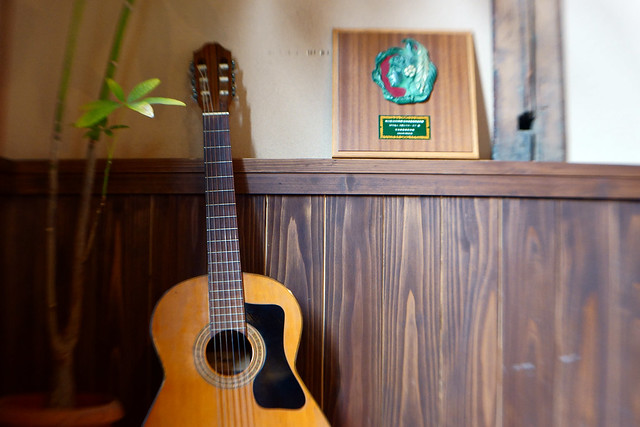
*
The nights are gathering, quickly, and you’ve been sitting on this silent bench in the front yard concrete patio for hours, eyes half shut with measured grief, waiting. You have your oversized Jelabia on. No, not the slightly pink one. That one reminds you of his imperfect lips, with an everlasting gloss and un-patterned strokes, like branches of an old root. It isn’t the grey one either. The one which addresses a tender feel of his dreamy, wide eyes on your skin. It’s the black one that covers your screaming flesh. The one that’s an ensign of that night he left, quietly, shutting the door with little effort, so it didn’t have to sound like a slam.
But he hasn’t returned. He didn’t come yesterday too, and the day before yesterday, when the sun showered so recklessly you felt he would come back, bearing white lights on his flimsy skin, but no.
His room is still the same way he had left it almost three weeks ago, aware and warm, excepting the absence of a few shirts and pants. His guitar still leans on one of the room’s nooks, patient and waiting. The valances flutter seamlessly to the intrusion of the night’s wind. Were he around, he would have wrested his guitar from the wall, and would have strummed the strings to the wind’s howls, and would have said, every sound is music, mama. You need only calm the tempest in their wild voices, and the songs will hiss out. Then he would have slept, sprawling out his limbs conveniently, while the brown & cream instrument clung to his heart.
**
You two have always had your little, little differences:
Like when he was few months shy of six, and had started developing that blonde, withering hair that was so, so difficult to comb, he told you he would rather you let him go to church than the masjid. That the masjid was quite boring and had a bland taste. You surrendered to his request after some time.
Or, the times he wouldn’t stop asking about his father, which always resulted in low tones of quarrel.
Or, the times he would play his music so loud it made your ears cringe, and whenever you told him not to kill you, because you didn’t kill your own mother, he would raise the volume further, until you could no longer bear it, and it became him, alone in the house.
***
It’s Saturday night, and the rains have gone, far away, to reside on another coast. You sit by the window, gazing at the moon, the milky blood that pours out of its flesh as it tells of its going, and how dawn will be beautiful. It reminds you of his several soft, soft, characteristics; like his father’s: his blonde hair, his long nose, his raw velvety skin that felt like sunrise. The way he responded to anything music, and always strummed the air with his sixteen-year old long, bony fingers. The way he had played with his ear when he met Yetunde, your landlord’s daughter, for the first time. The way he ululated whenever, in the shower, he mistakenly opened the cold water after he had forgotten to heat it. You remember that afternoon, three weeks ago, when you came back home from the mosque, and found him in the solemnity of his room, holding another boy by the waist, kissing him the way poets kiss their dead lovers in their poems. You remember how the two boys had stopped when they saw you, slow rhythms in their eyes, fingers still locked with a watery tension. You remember sobbing nonstop, almost inviting the neighbours. How his pretty eyes had blown into a synthesis of chaos and embarrassment, with his teenage lips looking damp, still wet from the thing he had done. How silence took form, slowly until none of you talked to the other again, and when occasionally you spoke, you told him he was no different from his father, that he was a shame; an abomination. How, when dusk snaked in, he had heaved his tarpaulin backpack, and had left without saying a word, leaving a note behind about him going in search of his father. And as you stare at the moon, hoping somehow, it will crack and hatch him, you remember how the moon never came out that night.
****
It’s Sunday, and you’re in church. Perhaps, the different gods hear petitions at different frequencies. You don’t join in the procession. All you do is move your lips, silently, until words take shape out of nothing and become prayer. And you won’t stop staring at the drummer boy, the way his hands move while the church breaks open like day. He looks same age as your boy. After service, you approach him, and ask him what his name is. Isaac, he says.
His room is quiet and cold now. When you try his lines for the umpteenth time, the voices come in, hurried and defeated, like a liquid rush: The MTN number you’re trying… The glo number is currently…
His body lies deep inside the loam behind your house, but you refuse to accept he’s absolutely gone. There are many stories you want to tell him. Many confessions you need to render. You want to tell him he can love whomever he wants. You want to tell him he won’t find his father, because his father isn’t somewhere beautiful, and beautiful boys like him are meant to walk the beautiful soils, and breathe in beautiful air.
You will wear the black Jelabia today, and sit outside, on that brown bench until the sun melts into the hills. You know he will come, and if he doesn’t, today, he will, tomorrow, or the day after tomorrow. And if by then he hasn’t come, you will know it isn’t the sun’s duty to bring him back, but the waters’, and then you will wait for the rains.
About the Writer:
 Salvy is a Nigerian writer who lives and writes in Nigeria; who loves peacocks and unicorns and the colour black.
Salvy is a Nigerian writer who lives and writes in Nigeria; who loves peacocks and unicorns and the colour black.


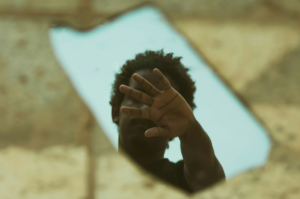
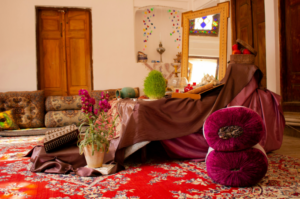
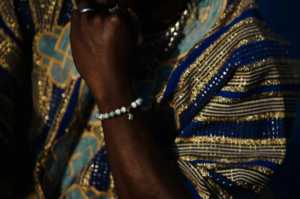

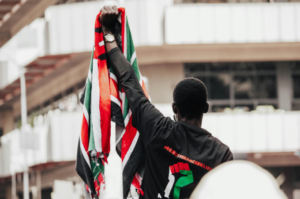


COMMENTS -
Reader Interactions